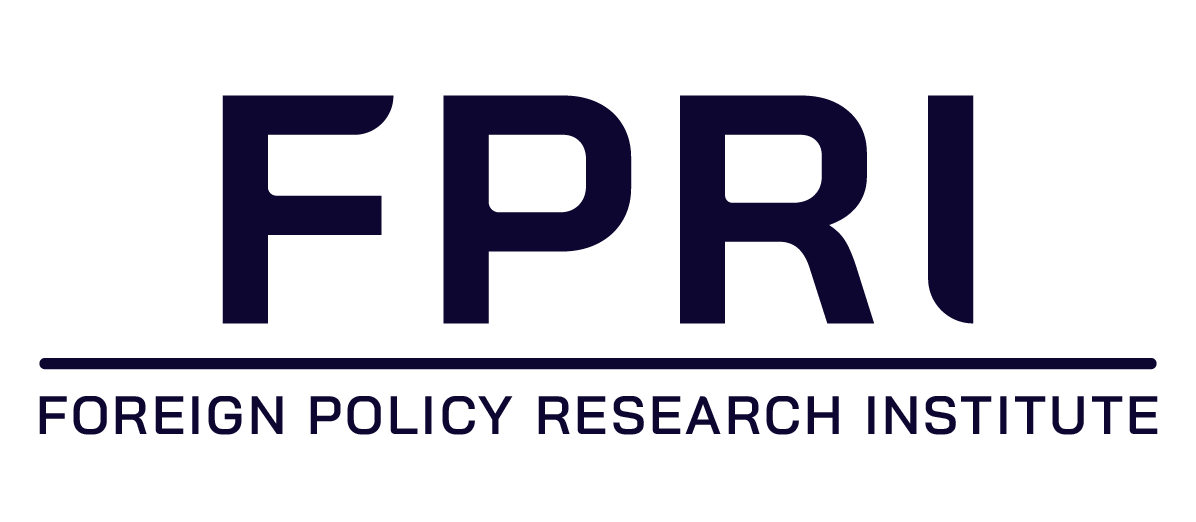A nation must think before it acts.
On October 31, Georgian voters will head to the polls to elect a new parliament. The election is seen as a litmus test of legitimacy for the ruling Georgian Dream Party (GD) and as a referendum on party leader Bidzina Ivanishvili’s oligarchic rule. The vote will come down to a choice between two very contrasting visions: Georgians will either vote for the ruling party’s increasing tilt towards strategic approximation with Russia or for the country’s long-standing drive towards Euro-Atlantic integration.
Considering the growing unease in its relationship with Western partners, the ruling party’s reelection could dramatically reshape Georgia’s strategic orientation. It could even lead to the deterioration of the country’s relationship with both the United States and the European Union, while transforming its allegedly covert and indirect coordination with Moscow into an overt partnership and strategic realignment.
Given the United States’ sizable investment in Georgia’s democratization and Westernization over the past three decades, Washington cannot afford to see Georgia’s democratic backsliding or its return to Russia’s sphere of influence. As the White House has been distracted by the COVID-19 pandemic and its strategic competition with China, the U.S. Congress has taken a leading role in highlighting many Russia-related challenges and raising the alarm on the deteriorating situation in Georgia. In their letters, statements, and reports, U.S. lawmakers have expressed concern about the deterioration of democratic norms in Georgia, the regime’s suspicious ties with America’s adversaries, and the deliberate construction of bureaucratic barriers against American companies operating in Georgia. These statements have even named Ivanishvili—emphasizing his suspicious ties with the Russian government—and they have called on the administration to address Georgia’s democratic derailment.
The spirit of the letters by Sen. Ted Cruz (R-Texas), Rep. Adam Kinzinger (R-Illinois), and other U.S. lawmakers has echoed and coincided with a report produced by the Republican Study Committee’s Task Force on National Security: the RSC Security Strategy, which names Eastern European oligarchs Vladimir Yevtushenkov and Igor Shuvalov, along with Bizana Ivanishvili, who is listed as, “the richest man in Georgia, [a] close ally of Putin and involved in destabilizing Georgia on Russia’s behalf.” These documents underline the threat Ivanishvili poses to U.S. interests in Georgia and propose targeted sanctions as a policy solution in response. The RSC suggests, “The Department of State should produce a report listing the Kremlin-connected oligarchs,” noting that, “such [a] report would be useful for Congress to determine the necessity of future sanctions and would deter individuals and entities from working with the Kremlin.” The House Appropriations Committee’s recent proposal to block 15% of U.S. aid unless Tbilisi strengthens democratic institutions speaks volumes about Congress’ growing disappointment over the political processes unfolding in Georgia.
Ivanishvili’s inclination to autocracy and his approach to statecraft are alarming. His rule seems to represent a major challenge to Georgia’s democratic development and its aspirations for Euro-Atlantic integration. In the past eight years, Ivanishvili’s control of the judicial system, contempt for civil society, attacks on critical media, arrests of political opponents, and crackdown on peaceful protesters, not to mention indirect vilification of the West, raise questions about the Georgian Dream government’s commitment to democratic principles, values, and prospects for Georgia’s Euro-Atlantic integration.
Under Ivanishvili’s rule, Georgia has become another victim of the state capture phenomenon, widespread in today’s Eurasia. Though the former prime minister and current party leader holds no elected office and remains exempt from all public accountability, he, along with his personal appointees within the government, exerts significant influence on nearly all public institutions. Within his informal governance structure, many individuals have moved from private enterprise to key governmental positions and seem to provide Ivanishvili with further levers of control.
Major economic and financial decisions in the country are made by a small group of people whose identities are often unclear and unknown to the public. Ivanishvili and his team are intertwined with local “minigarchs” and strongmen who benefit from his patronage in exchange for political loyalty. While the former exploits the state and local municipal resources (economic, financial, and geographic) for narrow party interests, the latter ensures votes and electoral support for the GD. Consequently, informal power-brokering and kitchen table politics enhance clientelism and corruption in the country, while strengthening a sense of widespread injustice and insecurity in Georgian society.
Ivanishvili is often accused of transforming the whole judicial system into his private notary bureau, where informal agreements and back-alley dealings are common practice. With his backing, a clan of influential judges have real leverage for influencing major decisions within the judicial system. The deliverance of favorable decisions and unyielding political loyalty, particularly in high-profile cases involving sensitive political matters and high-value civil disputes, is a must for a judge to keep his or her job..
In his efforts to conform the media landscape to the GD’s narrative, Ivanishvili has been known to attack and pressure independent media. There is hardly an opposition media outlet in Georgia that has not been attacked or harassed by his team. With the judicial system at his full disposal, he snatched Rustavi 2 from its legitimate owners, brought trumped-up charges against the founders of TV Mtavari, indicted a family member of the owner of TV Pirveli, and forcibly changed the leadership of Achara TV. The GD also took control of the publicly funded Pirveli Arkhi channel.
Formally, Ivanishvili has maintained pro-Western rhetoric and welcomed gradual approximation with the West, but his actions have hardly matched his public statements. Indeed, his hidden anti-Western agenda was exposed by Facebook in December 2019. The social media platform took down hundreds of fake accounts and pages linked to the GD. The Atlantic Council’s Digital Forensic Research Lab (DFRLab) found that the network of fake accounts worked to sow discord and division in Georgian society, supported Ivanishvili and his allies, and tried to discredit Georgia’s Western partners, especially the United States.
Moreover, Ivanishvili is engaged with alleged Russian satellite actors, such as Levan Vasadze (the head of pro-Russian radical groups), the Georgian March (an ultra- nationalist group), and the Patriots’ Alliance (an openly pro-Russian party). He indirectly funds, supports, and employs these far-right and pro-Russian groups—on the one hand, to demonize the West, and on the other, to counter demonstrations and street rallies protesting the GD’s pro-Russian course. While the regime employs Putin’s playbook to quash dissent, it spreads and amplifies Russian narratives painting Western values as a threat to Georgian traditions, culture, family values, and Orthodox Christianity.
Ivanishvili did not hesitate to crackdown on peaceful demonstrators protesting Sergei Gavrilov’s (Russian Parliamentarian) participation in and chairmanship of the annual session of the Inter-Parliamentary Assembly on Orthodoxy (IAO) taking place in front of the parliament building in Tbilisi. The police used tear gas, rubber bullets, and water cannons to disperse the rally. The use of disproportionate force against the demonstrators left hundreds severely injured. The regime continued its excessive use of force by arresting and charging political leaders and civilian protesters.
Between summer 2019 and summer 2020, the regime conducted a number of politically motivated arrests and prosecutions. While arresting hundreds of demonstrators for protesting the Russian occupation in summer 2019, the regime imprisoned Giorgi Rurua, the co-owner of TV Mtavari, and Gigi Ugulava and Irakli Okruashvili, opposition party leaders. Although President Salome Zurabishvili recently pardoned the latter two as a concession to pressure mounted by the U.S. and EU, her mercy fell short on the former.
Ivanishvili and the members of the GD have repeatedly demonized and attacked civil society, discrediting and undermining not only Western-funded non-governmental organizations (NGOs), but also the values that they stand for. Ivanishvili’s regime ratcheted up pressure on Transparency International-Georgia, Georgian Young Lawyers’ Association (GYLA), International Society for Fair Elections and Democracy (ISFED), and other NGOs to intimidate critics, while accusing the National Democratic Institute (NDI) and International Republican Institute (IRI) of manipulating public opinion against the regime. It is clear that Ivanishvili’s stifling of anti-government criticism harms Georgian civil society and the nascent culture of activism that has struggled to grow in the past three decades, limiting international—especially Western—NGO capacity in Georgia.
Under Ivanishvili’s leadership, the GD’s actions have gradually undermined American business interests and stalled U.S.-backed projects in Georgia. While imposing stifling regulations and restrictions on Frontera Resources (a Texas oil company and the largest U.S. investor in Georgia), the government pushed the Conti Group (the major shareholder in the Anaklia Deep Water Port) out of the country. Many in Georgia, including opposition leaders, have openly accused Ivanishvili of supporting Russia’s interests. They see his role in stalling the Anaklia project as dictated from Moscow—and motivated by strategic considerations. The success of the project would have had far-reaching geopolitical implications: It would have increased Georgia’s trade with the EU, accelerated the country’s integration process within Western institutions, attracted more American investments, and brought more security assurances to the greater Black Sea region. It would have also brought new oxygen to the East-West corridor while competing with the Russian-backed North-South axis and Kremlin-led energy and infrastructural projects, including the construction of the Kremlin-backed a new deep-sea port at the Kerch Strait.
Ivanishvili’s government is losing popularity at home and abroad. The GD resisted electoral law reforms for a long time, but now that the reforms are in place, there is a higher risk of losing parliamentary seats to opposition parties, and coalition-building is going to be trickier than before. Therefore, the ruling party seems to be willing to use any number of tricks to maintain its power. This election season has seen everything from voter intimidation, violence, and vote-buying, to abuse of administrative resources. The pandemic has created new opportunities for voter suppression, as thousands of COVID patients, as well as those in quarantine and self-isolation will not be able to vote.
Georgia—once a poster child for democracy in the Black Sea region and Washington’s reliable partner in the Caucasus—is running the risk of serious democratic backsliding and could even end up closer to Russia’s orbit. So far, the critical voices and policy recommendations that have come from the Hill sound promising, but more attention and engagement is necessary from Washington. Thus, the future of Georgia’s democracy, as well as concern over Russia’s growing influence in the Black Sea-Caucasus region, should have a prominent place on the next U.S. president’s foreign policy agenda.
The views expressed in this article are those of the authors alone and do not necessarily reflect the position of the Foreign Policy Research Institute, a non-partisan organization that seeks to publish well-argued, policy-oriented articles on American foreign policy and national security priorities.



